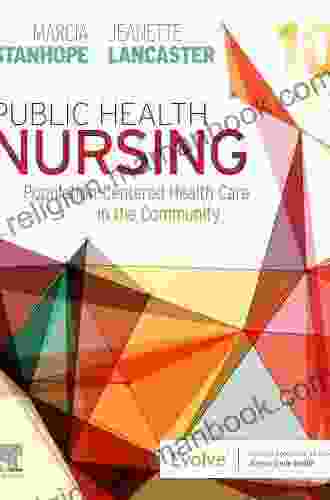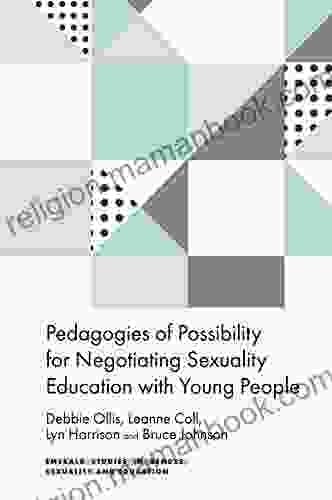Pedagogies of Possibility for Negotiating Sexuality Education with Young People

Sexuality education is an essential component of comprehensive education for young people. It provides them with the knowledge, skills, and attitudes they need to make informed decisions about their sexual health and well-being. However, sexuality education can be a challenging subject to teach, especially in contexts where there are diverse perspectives on sexuality and gender.
One approach to negotiating sexuality education with young people is through the use of 'pedagogies of possibility'. This approach is based on the belief that all young people have the potential to learn and grow, and that they should be given the opportunity to explore their own identities and values in a safe and supportive environment.
Pedagogies of possibility focus on creating learning environments that are inclusive, empowering, and critical. They encourage young people to think critically about their own beliefs and values, and to engage in dialogue with others who have different perspectives. This approach can help to create more open and honest conversations about sexuality, and can help young people to make informed decisions about their own sexual health and well-being.
4.5 out of 5
| Language | : | English |
| File size | : | 1131 KB |
| Text-to-Speech | : | Enabled |
| Screen Reader | : | Supported |
| Enhanced typesetting | : | Enabled |
| Word Wise | : | Enabled |
| Print length | : | 216 pages |
There are several key principles that underpin pedagogies of possibility. These principles include:
- Inclusion: All young people are welcome and respected in the learning environment, regardless of their sexual orientation, gender identity, or other characteristics.
- Empowerment: Young people are given the opportunity to make choices and take ownership of their own learning.
- Critical thinking: Young people are encouraged to think critically about their own beliefs and values, and to engage in dialogue with others who have different perspectives.
- Dialogue: Young people are given the opportunity to share their own experiences and perspectives, and to listen to the experiences and perspectives of others.
- Safety: The learning environment is safe and supportive, and young people feel comfortable sharing their thoughts and feelings.
There are several benefits to using pedagogies of possibility in sexuality education. These benefits include:
- Increased knowledge and understanding: Young people who are taught sexuality education using pedagogies of possibility have greater knowledge and understanding of sexuality and sexual health.
- Improved critical thinking skills: Young people who are taught sexuality education using pedagogies of possibility are better able to think critically about their own beliefs and values, and to engage in dialogue with others who have different perspectives.
- Increased self-esteem and empowerment: Young people who are taught sexuality education using pedagogies of possibility have greater self-esteem and empowerment, and are more likely to make informed decisions about their own sexual health and well-being.
- Reduced risk of sexual violence: Young people who are taught sexuality education using pedagogies of possibility are less likely to experience sexual violence.
There are many different ways to implement pedagogies of possibility in sexuality education. Some examples include:
- Using inclusive language and imagery: Using inclusive language and imagery helps to create a welcoming and respectful learning environment for all young people. This includes using language that is respectful of different sexual orientations and gender identities, and using images that represent diversity.
- Providing opportunities for young people to share their own experiences: Giving young people the opportunity to share their own experiences helps them to feel valued and respected. It also allows them to learn from each other's experiences.
- Encouraging critical thinking and dialogue: Encouraging young people to think critically about their own beliefs and values helps them to develop their own informed opinions. It also allows them to engage in dialogue with others who have different perspectives.
- Creating safe and supportive learning environments: Creating safe and supportive learning environments is essential for young people to feel comfortable sharing their thoughts and feelings. This includes providing a space where young people feel respected and valued, and where they are not afraid to ask questions or express their opinions.
Pedagogies of possibility offer a promising approach to negotiating sexuality education with young people. This approach can help to create more inclusive and empowering learning environments that foster critical thinking and dialogue. The benefits of pedagogies of possibility include increased knowledge and understanding, improved critical thinking skills, increased self-esteem and empowerment, and reduced risk of sexual violence.
By using pedagogies of possibility, sexuality educators can create learning environments that are safe, supportive, and inclusive. They can also help young people to develop the knowledge, skills, and attitudes they need to make informed decisions about their sexual health and well-being.
4.5 out of 5
| Language | : | English |
| File size | : | 1131 KB |
| Text-to-Speech | : | Enabled |
| Screen Reader | : | Supported |
| Enhanced typesetting | : | Enabled |
| Word Wise | : | Enabled |
| Print length | : | 216 pages |
Do you want to contribute by writing guest posts on this blog?
Please contact us and send us a resume of previous articles that you have written.
 Top Book
Top Book Novel
Novel Fiction
Fiction Nonfiction
Nonfiction Literature
Literature Paperback
Paperback Hardcover
Hardcover E-book
E-book Audiobook
Audiobook Bestseller
Bestseller Classic
Classic Mystery
Mystery Thriller
Thriller Romance
Romance Fantasy
Fantasy Science Fiction
Science Fiction Biography
Biography Memoir
Memoir Autobiography
Autobiography Poetry
Poetry Drama
Drama Historical Fiction
Historical Fiction Self-help
Self-help Young Adult
Young Adult Childrens Books
Childrens Books Graphic Novel
Graphic Novel Anthology
Anthology Series
Series Encyclopedia
Encyclopedia Reference
Reference Guidebook
Guidebook Textbook
Textbook Workbook
Workbook Journal
Journal Diary
Diary Manuscript
Manuscript Folio
Folio Pulp Fiction
Pulp Fiction Short Stories
Short Stories Fairy Tales
Fairy Tales Fables
Fables Mythology
Mythology Philosophy
Philosophy Religion
Religion Spirituality
Spirituality Essays
Essays Critique
Critique Commentary
Commentary Glossary
Glossary Bibliography
Bibliography Index
Index Table of Contents
Table of Contents Preface
Preface Introduction
Introduction Foreword
Foreword Afterword
Afterword Appendices
Appendices Annotations
Annotations Footnotes
Footnotes Epilogue
Epilogue Prologue
Prologue Julia M Busch
Julia M Busch Charles Dickens
Charles Dickens Mayo Clinic
Mayo Clinic Joan Lipinsky Cochran
Joan Lipinsky Cochran Alcaeus
Alcaeus Adrienne Foster Potter
Adrienne Foster Potter Bill Browder
Bill Browder Don Jb Shibia
Don Jb Shibia Sarah Goodwin
Sarah Goodwin The Relationchick
The Relationchick Dannika Dark
Dannika Dark Jennifer Probst
Jennifer Probst Daniel Sunday
Daniel Sunday Margaret Paul
Margaret Paul Jim Hasse
Jim Hasse Dandi Palmer
Dandi Palmer Tanner Olson
Tanner Olson Ellen Goodlett
Ellen Goodlett Jennifer Gomes
Jennifer Gomes John Filson
John Filson
Light bulbAdvertise smarter! Our strategic ad space ensures maximum exposure. Reserve your spot today!

 Dustin RichardsonPopulation Centered Health Care: A Comprehensive Approach to Community Health
Dustin RichardsonPopulation Centered Health Care: A Comprehensive Approach to Community Health Camden MitchellFollow ·10.1k
Camden MitchellFollow ·10.1k Julio CortázarFollow ·14.2k
Julio CortázarFollow ·14.2k Billy PetersonFollow ·15.9k
Billy PetersonFollow ·15.9k Jack ButlerFollow ·12.9k
Jack ButlerFollow ·12.9k Brayden ReedFollow ·8.1k
Brayden ReedFollow ·8.1k W. Somerset MaughamFollow ·15.7k
W. Somerset MaughamFollow ·15.7k Langston HughesFollow ·17.5k
Langston HughesFollow ·17.5k Todd TurnerFollow ·8k
Todd TurnerFollow ·8k

 David Peterson
David PetersonUnveiling Eleven of the Wheel of Time: A Journey Through...
In the vast and intricate...

 Curtis Stewart
Curtis StewartEbony Jay Rice: A Rising Star in the Entertainment...
Ebony Jay Rice is a force to be reckoned...

 Matt Reed
Matt ReedNavigating Mental Health with Science: Overcoming...
Mental health is an integral part of...

 Guillermo Blair
Guillermo BlairFormer Magistrate's Poetic Reflections on Love and...
In the hallowed halls...

 Corey Green
Corey GreenOf the Dead: William Burroughs' Post-Beat Masterpiece
William S. Burroughs' Of the...
4.5 out of 5
| Language | : | English |
| File size | : | 1131 KB |
| Text-to-Speech | : | Enabled |
| Screen Reader | : | Supported |
| Enhanced typesetting | : | Enabled |
| Word Wise | : | Enabled |
| Print length | : | 216 pages |












